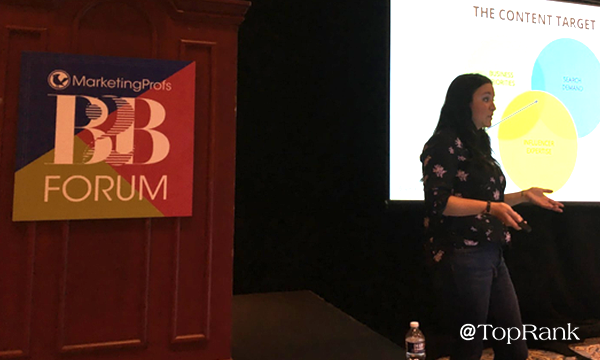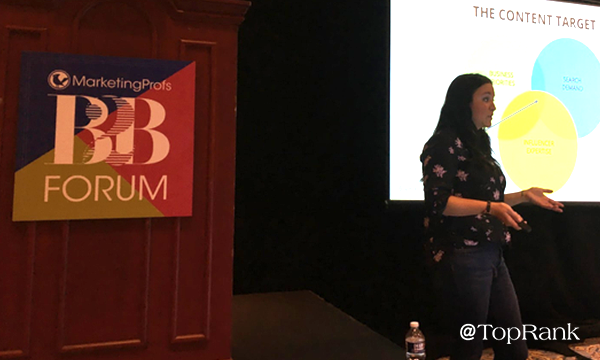
What is that makes Alice in Wonderland so powerful and resonant? It’s a tale that’s been retold – through books, movies, TV, video games, and various other content formats – time and time again. Terms like “down the rabbit hole” and “through the looking glass” are now fixtures in our collective lexicon. Almost everyone is familiar with Lewis Carroll’s whimsical world of fantasy.
Why?
There are many reasonable answers, but for me, it comes down to the characters. From Alice to the Mad Hatter to the Cheshire Cat to Tweedle Dee and Tweedle Dum, the denizens of Wonderland are deeply memorable, and – in their own ways – relatable. As humans, we connect with people on a level that transcends things or places.
This is why influencer marketing is so vital for modern businesses. And it’s why Alice’s adventures served as a perfect backdrop for Tuesday’s session from Ashley Zeckman, TopRank Marketing’s Senior Director of Digital Strategy, covering always-on influencer strategy at MarketingProfs B2B Forum.
The Whimsical World of Always-On Influencer Marketing
Marketers need to find new ways to engage people and build rapport with our audiences. These are simple realities of a crowded business environment where trust is in peril. Influencer marketing presents an opportunity to tap into the established credibility and connections that people in your industry or niche already have with their own audiences.
But, as Ashley explains, it’s all too easy to get it wrong.
Down the Rabbit Hole: Three Pitfalls of Influencer Marketing
To keep you from running astray in your journey, here are three common missteps to avoid.
Utter Chaos!
Interviews and podcasts and eBook contributions… oh my! Random acts of content are pervasive throughout the marketing landscape, and influencer co-creation is no different. When the content you’re creating in partnership with influencers feels random and chaotic, it isn’t likely to achieve the results you seek.
Instead, Ashley recommends using a connected approach. Ensure that everything you’re creating is strategically aligned and purposeful.
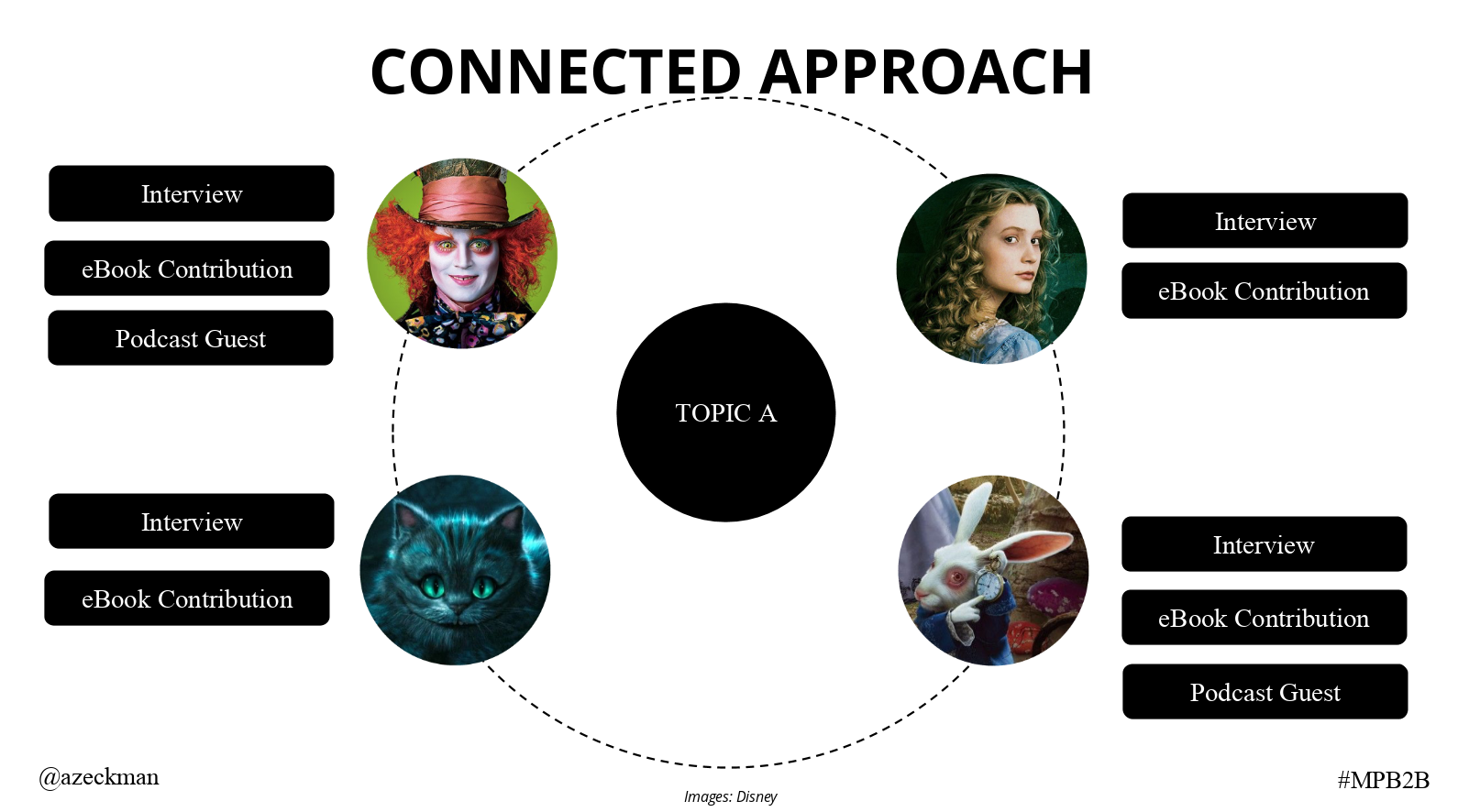
Too Transactional
“We can’t ask for something without giving them a reason,” Ashley explains. But that doesn’t mean we should always view influencer engagements as transactional, give-and-take situations. Yes, you want the people on the other end to feel incentivized, but you also want them to feel personally invested.
That’s why relationships are foundational to always-on influencer programs. Building those relationships takes time, effort, and thoughtfulness. Instead of just reaching out as a stranger and making an ask, Ashley advises priming a relationship with an influencer. For example, before asking Alice for a contribution to your content, you could follow her on social media, interact with her there, and maybe even feature her in some of your own content.
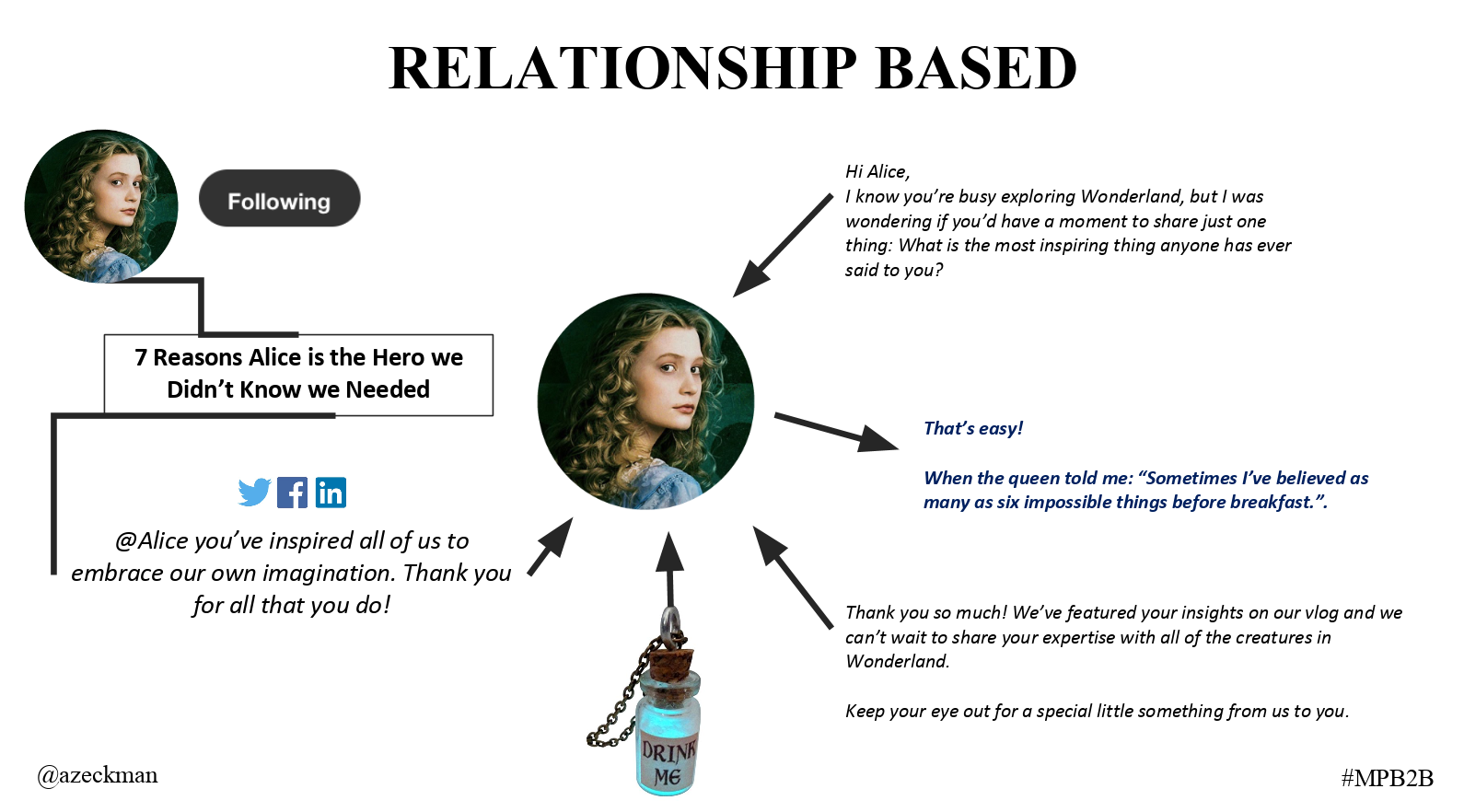
Measuring Popularity
Quality over quantity. It’s a mantra worth embracing in every area of marketing, and this one is no different. Great influencers aren’t defined solely by the size of their followings, nor are great programs defined solely by the extent of their reach. Instead, measure success in terms qualitative metrics like these, with respect to each specific influencer:
- Referrals
- Conversions
- Editorial Mentions
- Total Link Shares
- Share of Voice
Scalable Influencer Success: A World of Wonder
“Now, here, you see, it takes all the running you can do, to keep in the same place. If you want to get somewhere else, you must run at least twice as fast as that!” – The Red Queen
Scaling any major initiative is hard. It can sometimes feel like running in place. But with the right strategic framework, you don’t need to run twice as hard to get where you want to go.
Step 1: Find Your Topical Sweet Spot. Effective and relevant influencer content lies at the intersection of business priorities, search demand, and influencer expertise.
Step 2: Identify a Balanced Influencer Mix. There are many different types of influencers (brandividuals, up-and-comers, niche experts, internal experts, and customers). It’s ideal to have some of each included in your program. Think about the reach-versus-resonance dynamic; an internal expert at your company might have fewer followers than a brandividual, but the target audience will likely see themselves more in the former. That’s valuable.
Step 3: Create a Repeatable Engagement Model. This is critical to the success of a scalable always-on strategy. There are no shortcuts to building and maintaining genuine relationships, per se, but you can do so sustainably with a repeatable set of actions.
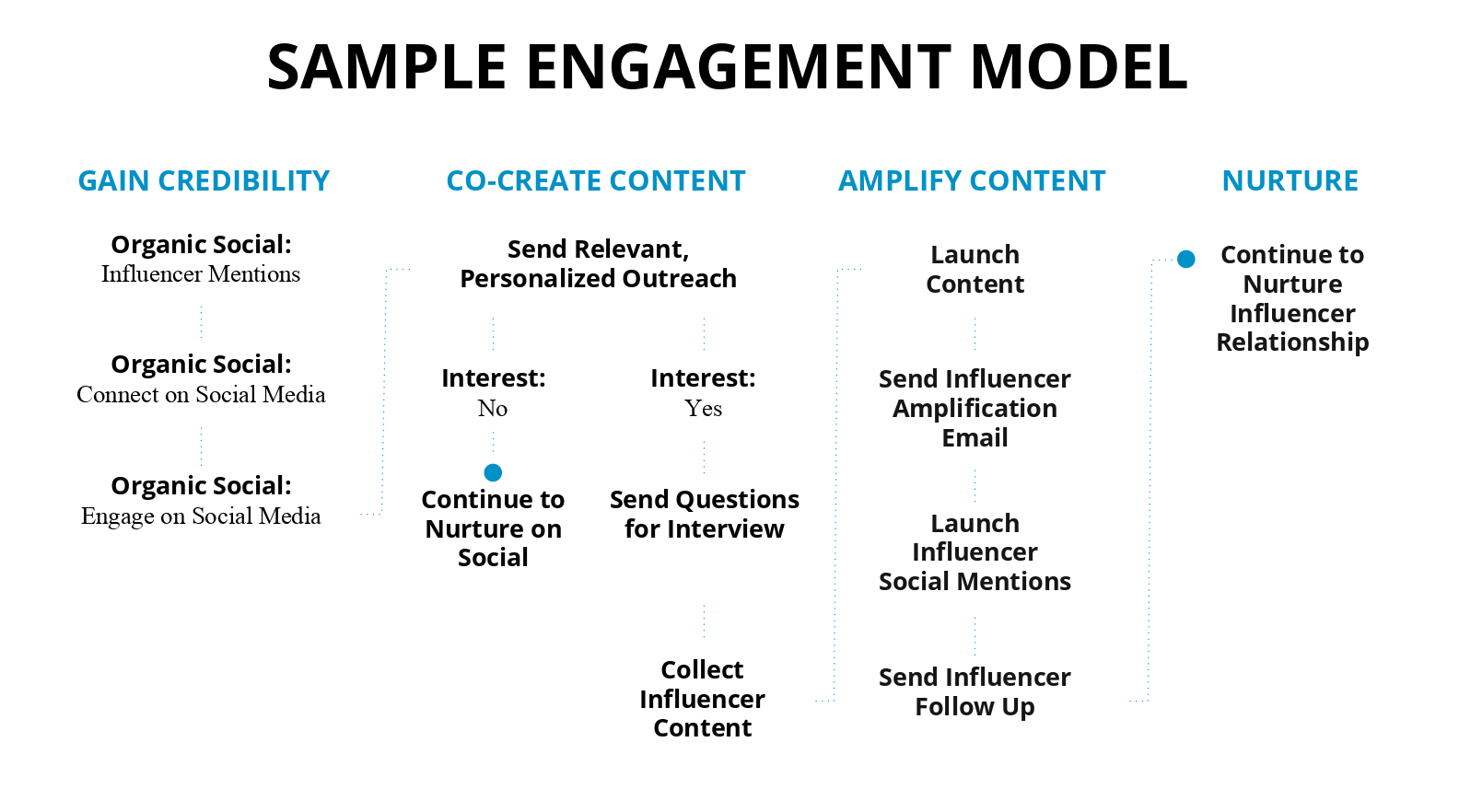
Happy Endings
At TopRank Marketing, always-on influencer programs are among our primary focuses. We’ve seen great success deploying them with several clients, and Ashley shared a number of examples, including:
- An episodic podcast with SAP that exceeded industry download benchmarks by 20%, with 104% higher-than-average time on landing pages and 81.9 million in estimated influencer reach.
- A connected narrative content program with Prophix, featuring several interactive experiences designed to help finance pros solve problems, that surpassed video view and conversion benchmarks by 54% and 150%, respectively.
- A relationship-first communal influencer program with LinkedIn that yielded the most-shared post on their blog and drove subscriptions at a rate 350% higher than the benchmark.
Step Through the Looking Glass
“When I used to read fairy tales, I fancied that kind of thing never happened, and now here I am in the middle of one!” – Alice
Successful always-on influencer programs are no fairy tales. You too can find yourself in the middle of one by following the strategic approach Ashley lays out: Avoid pitfalls, choose the right partners, measure accurately, and develop scalable models for sustained relationships. With these steps, you’ll be on your way to Wonderland.
Stay tuned for more live coverage of #MPB2B here on the TopRank Marketing Blog. In addition, follow along in real-time on Twitter at @NickNelsonMN, @azeckman, @leeodden.
